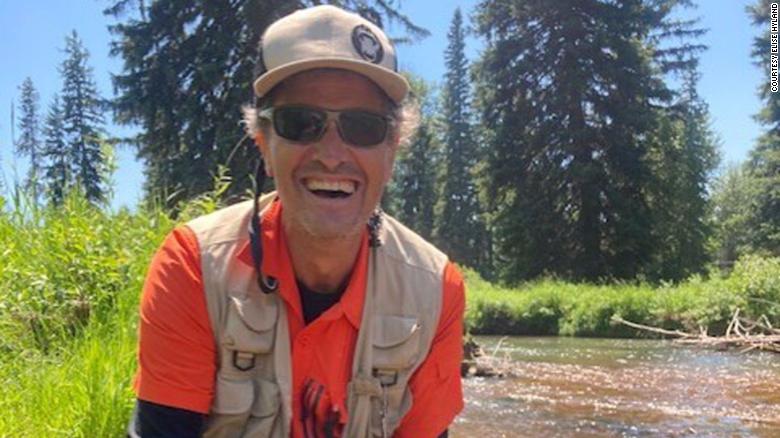To quote The Sugar Hill Gang, “I'd like to say hello, to the black, the white, the red, the brown, the purple and yellow.” Let's take a look at how diversity is represented in the cannabis industry now, and what we can do to promote a rainbow of flavor in the state of cannabis to come.
If you've visited a typical cannabis industry event in California, purely business to business (B2B), meaning not consumer-facing, you might have noticed the demographic leans Caucasian and male. This is contrary to what statistics indicate for actual composition of the populace. According to the 2010 census, the break out by race is as follows: 73.2% of Californians are “white alone,” 38.6% are Hispanic or Latino, 6.5% are of African decent, and 2.2% are Native American (including Pacific Islanders). Gender is an almost 50-50 balance, yet 70% of firms in California are male-owned.
When we look to the most publicly recognized individuals in the cannabis industry across the US, they are also primarily Caucasian and male. Steve DeAngelo, Ethan Nadelmann, Keith Stroup, Tripp Keber, Aaron Justis to name a few, are all white males. This may not be very surprising considering the majority of US businesses in the 2002 census survey were owned by caucasians (86.6%), and male-owned firms contributed 57.4% percent of all business revenue.
One might propose that the status quo of male business ownership as it pertains to the cannabis industry simply reflects the higher levels of consumer marijuana use among the male gender. Research does show that males in the U.S. are currently more likely to consume cannabis than females, but the gap is less than 5%.
If we look at Colorado, where recreational use has been legal since 2012, cannabis consumers are slightly more male reflecting the national average with 17.2% of the total Colorado population compared to female users at 10%. However, of interest, when we look at the breakout of use by race in the remarkably white state (87.7% are white) ironically known as Colorful Colorado, individuals of African decent are about 5% more likely to chief than their white counterparts, and only slightly fewer in percentage are Latinos. Given these figures on consumption, one might assume that there would be more diversity in those who own canna-businesses there.
While the number of minority-owned businesses in the industry may be limited, those who do have access to the funds and the necessary experience to navigate the complicated application process, are making a formidable stand for change. The cannabis legalization movement has become a catalyst for shedding light on a highly-discriminatory justice system. In many states where cannabis is legal, individuals with a record of misdemeanor or arrest for possession of federally illegal drugs are prohibited from applying for licenses to distribute. Unfortunately, this creates a disparity that is intolerable. Americans are becoming painfully aware of the fact that minorities are arrested for possession in much higher numbers than whites with longer, more severe sentences. Some suggest that the outrageous incarceration rates of minorities for drug possession have been motivated by an intent to proliferate what is tantamount to legally-sanctioned slavery.
Wanda James, a well-respected cannapreneur in Colorado, recounts an experience that hits home and hits home hard. As an undergrad at the University of Colorado, she explains that white kids were blatantly smoking grass in front of authorities without reprehension. Her brother, a young African American man was not so fortunate. Sentenced to an excruciating 10 years at a federal prison, he literally picked cotton for almost 5 years while incarcerated in Texas.
According to the ACLU, over half of all drug arrests in the U.S. are for possession of small amounts of marijuana and individuals of African decent are almost four times more likely to be arrested than those of European heritage. In some states that divide of racial bias widens with some staggering figures. In 2010, blacks were arrested is excess of seven times more frequently than whites in Iowa, D.C., Minnesota, and Illinois. Given that established white-owned canna-businesses in California are still encountering raids with questionable legitimacy that threaten their livelihood, it is evident why minorities might wish to tread lightly at these early days of decriminalization. Reform of the justice system is needed to pave the way for more minority entrepreneurialism across the nation, beyond just the cannabis industry.
Positive changes are afoot, albeit slow-moving. We are seeing a continuation of the much-needed advancement in civil equality in the United States with inclusive, progressive organizations like Black Lives Matter empowering black people and countering the wrongs of the criminal justice system. This is a very important step in protecting black entrepreneurs as a whole as well as in promoting diversity in the cannabis industry.
Racism has been a source of oppression in these united states since the genesis of our existence and persists today beyond the African American community. Native Americans have overcome genocide and are perseverant in their efforts today to expand their sovereignty and protect their cultural heritage. In December of 2014, the U.S. government released a memo authorizing tribes to grow cannabis on reservation land. In keeping with a long tradition of opposition, tribes are encountering many obstacles when navigating the government bureaucracy to actually create grow operations. The first Native cannabis storefront in the nation opened in Washington last year, and that is a fantastic start to what we hope will be many across this nation to come.
The cannabis industry is primed for a dramatic shift in the demographic of business ownership. For the first time in our lives, the gates have opened for American scientists to conduct research surrounding the effects and makeup of the cannabis plant. With this newfound scientifically-backed wisdom surrounding the healing powers of marijuana, we can anticipate broader use and more diversity in the consumer-base. The entrepreneurial pool will also shift positively as the resounding call for justice and equality gets harmoniously louder and louder and louder.
Women are also stepping up to the plate both as mothers protecting their children's right to organic medicine and as business owners. Jazmin Hupp founded Women Grow to spur the foundation of female-run businesses in the cannabis industry. This organization now has monthly meetings in over 30 cities nationwide. A frequent attendee of Women Grow meetings in Los Angeles, Tracy Ryan started Cannakids to provide children with quality, lab-tested medicine that is literally saving lives.
We're seeing some more diversity beyond gender in female-run canna-businesses. Wanda James, mentioned above, is breaking ground with the only black woman-run dispensary in Colorado. Madeline Martinez is a pro-cannabis activist, Oregon cannabis cafe owner, and “Latina grandmother” who finds inspiration in supporting legal reform to protect minorities from disproportionate incarceration. Adelia Carrillo, founder of entrepreneurial network Seed Series is a strong supporter of budding businesses in San Diego and an active member of the National Latina Business Women Association. She often attends events around the nation with her cannabis media portal DirectCannabisNetwork.com highlighting commercial and technological advancements in the industry.
Much action is still needed on behalf of the cannabis-loving community to proliferate this movement. Native American women in particular are in need of our love and support in overcoming the still-persistent abuse as a result of both gender and race. If you are interested in making a positive impact, consider making a donation or volunteering with the following organizations: American Indian Business Leaders, Mending the Sacred Hoop, The Native American Women's Health Education Resource Center.
Unity and one love in the name of Cannabis.











